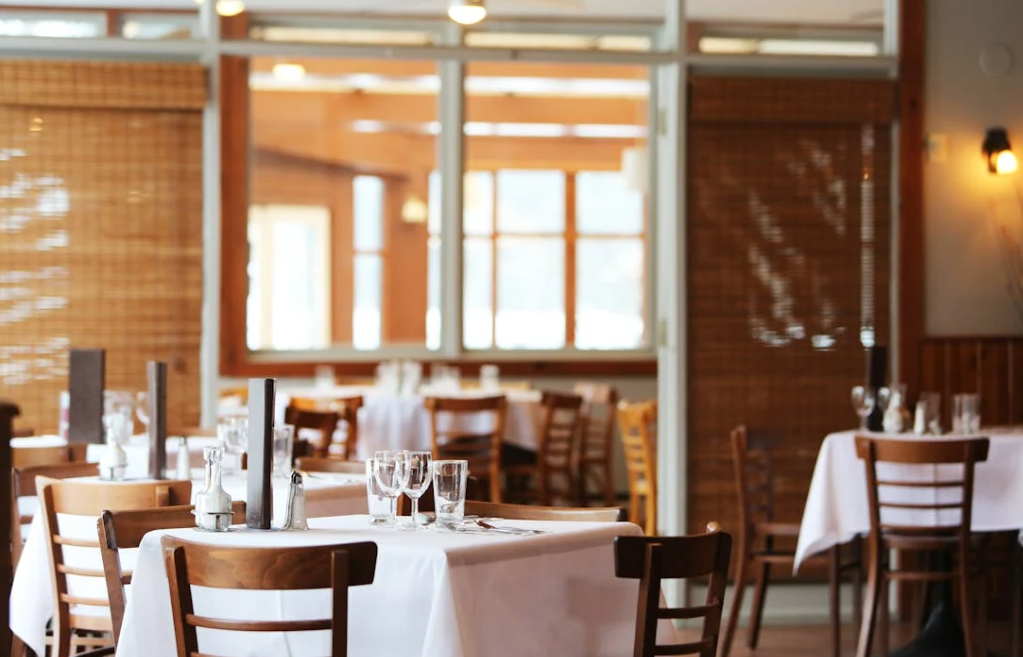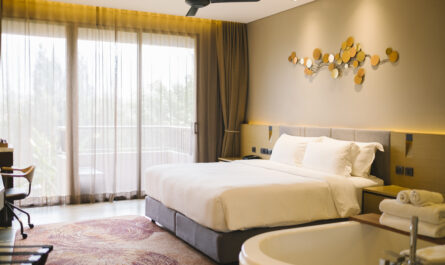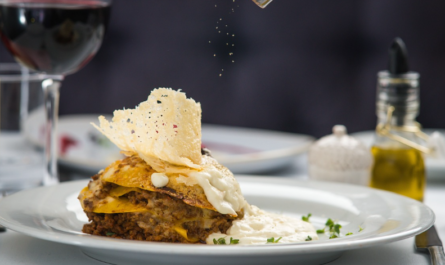Switzerland is celebrated worldwide not only for its majestic alpine landscapes and pristine lakes but also for its rich culinary heritage. From hearty cheese fondues and savory raclette to delicate pastries and fine chocolates, traditional Swiss cuisine offers a unique gastronomic experience that speaks to centuries of cultural blending and artisanal expertise. When this culinary tradition is combined with a luxury setting—be it a five-star hotel nestled in the Alps or an exclusive gourmet restaurant in a bustling city—the result is an unforgettable feast for all the senses.
This guide explores how to fully immerse yourself in the world of traditional Swiss cuisine without sacrificing the high-end comforts that define luxury experiences. Whether you are a seasoned foodie or a traveler seeking a lavish escape, read on to discover how to savor Switzerland’s culinary treasures in style.
A Journey Through Swiss Culinary Heritage
The Roots of Swiss Cuisine
Traditional Swiss cuisine is a fascinating amalgamation of influences from neighboring France, Italy, and Germany, shaped by the country’s unique geography and history. The mountainous regions of Switzerland have long favored dishes that are hearty, warming, and resourceful—designed to provide energy during long winters and alpine treks. This is why dishes like cheese fondue, raclette, and rösti have become emblematic of Swiss culinary traditions.
In contrast, the urban centers and lakeside regions have evolved a more refined gastronomic culture, incorporating innovative cooking techniques and modern presentation styles. The result is a culinary scene that honors its rustic origins while embracing contemporary trends—ideal for those who crave authenticity wrapped in luxury.
Signature Dishes That Define Swiss Cuisine
Cheese Fondue:
At its core, cheese fondue is a social dining experience. Imagine gathering around a beautifully set table in a high-end mountain chalet, where a pot of melted Gruyère and Emmental cheese is shared among friends, with crusty bread dipped into the warm, velvety mixture. The communal nature of fondue reflects Swiss values of togetherness and simplicity, elevated in a refined setting with elegant tableware and ambient lighting.
Raclette:
Raclette, another cornerstone of Swiss gastronomy, involves heating a wheel of cheese until it becomes delectably soft, then scraping off the melted layer to be served over potatoes, pickles, and cured meats. In luxury resorts, raclette is often presented with a modern twist: gourmet accompaniments, bespoke presentations, and sometimes even paired with fine wines from exclusive Swiss vineyards.
Rösti:
Originally a farmer’s breakfast, rösti has evolved into a versatile dish served as a side or even a main course in upscale establishments. Made from grated potatoes cooked to perfection, rösti’s crispy exterior and soft interior make it a comforting delight. In luxury settings, chefs reinvent rösti with exotic spices, truffle oil, or artisanal cheeses, transforming a humble dish into a gourmet experience.
Swiss Pastries and Chocolates:
Switzerland’s reputation for producing some of the finest chocolates and pastries in the world is legendary. Artisanal chocolatiers and patisseries have mastered the craft, creating confections that are as visually stunning as they are delicious. Luxury hotels often feature exclusive dessert menus where classic Swiss desserts are reimagined with innovative techniques, using only the highest-quality ingredients.
Embracing Luxury in the Swiss Culinary Experience
Setting the Stage: Where to Dine
Experiencing Swiss cuisine in a luxury setting means more than just eating a meal—it’s about the entire environment and service. Switzerland boasts numerous five-star hotels, gourmet restaurants, and exclusive resorts that offer not only extraordinary culinary delights but also impeccable service and stunning views.
High-End Alpine Chalets:
Imagine dining in a beautifully designed chalet perched high in the Alps. Floor-to-ceiling windows reveal panoramic vistas of snow-capped peaks and serene valleys, while a roaring fireplace adds warmth and ambiance. These chalets often host themed dinner events where traditional dishes like fondue and raclette are served with a modern twist. The luxurious surroundings enhance the experience, transforming a simple meal into an unforgettable celebration of Swiss heritage.
Exclusive Gourmet Restaurants:
Urban centers like Zurich, Geneva, and Lausanne are home to Michelin-starred restaurants where renowned chefs fuse traditional Swiss flavors with contemporary culinary techniques. These establishments are the perfect setting for those who appreciate the artistry of food. With meticulously crafted menus, expertly paired wines, and avant-garde plating, these restaurants elevate Swiss cuisine to new heights. The attention to detail in every aspect—from the décor to the service—ensures that each visit is a refined and memorable affair.
Luxury Hotel Dining:
Many of Switzerland’s most iconic hotels offer in-house dining experiences that combine heritage with innovation. Hotels like Badrutt’s Palace in St. Moritz, the Kulm Hotel, and the Carlton Hotel have dining rooms that exude elegance, serving traditional dishes with modern presentations. Guests are treated to impeccable service, gourmet meals, and immersive culinary events that celebrate Swiss traditions. Whether it’s a sumptuous breakfast buffet or an intimate dinner, dining in these hotels is designed to delight both the palate and the senses.
Immersive Culinary Experiences
Beyond simply dining, luxury settings in Switzerland offer immersive culinary experiences that allow you to engage with the food on a deeper level.
Cooking Classes with Master Chefs:
For those eager to learn the secrets behind Swiss culinary masterpieces, many luxury resorts and gourmet restaurants offer private cooking classes. Led by master chefs, these sessions provide an insider’s look into traditional techniques and modern innovations. You might find yourself crafting the perfect fondue, mastering the art of raclette, or even learning to bake delicate Swiss pastries. These hands-on experiences not only enhance your culinary skills but also provide a lasting memory of Swiss culture and hospitality.
Wine and Cheese Pairing Experiences:
Switzerland’s vineyards produce some exquisite wines that pair perfectly with the country’s rich cheese heritage. Luxury resorts often host exclusive wine and cheese tasting events, where sommeliers guide you through the intricacies of flavor, aroma, and texture. These events are set in elegant tasting rooms or even outdoor terraces with stunning views of the countryside. Savoring a glass of crisp Swiss white wine alongside a perfectly aged Gruyère, while enjoying the natural beauty around you, is a quintessential luxury experience.
Gourmet Food Tours:
In cities like Zurich and Geneva, gourmet food tours offer an opportunity to explore traditional Swiss markets, artisanal shops, and hidden culinary gems. These guided tours, led by knowledgeable locals, take you on a journey through history and flavor. You can sample freshly made rösti, taste small-batch chocolates, and enjoy regional specialties in quaint cafés. The tours often conclude with a lavish meal at a top-tier restaurant, where the day’s discoveries are celebrated in a luxurious setting.
Seasonal and Festive Dining Events:
Switzerland’s culinary calendar is punctuated by seasonal events and festivals that celebrate local traditions. During winter, many luxury hotels and restaurants host themed dinners featuring hearty Swiss fare, often accompanied by live music and elegant décor that evoke the charm of a traditional alpine village. In summer, outdoor dining experiences under starry skies provide a relaxed yet sophisticated way to enjoy the bounty of Swiss cuisine. These events allow you to experience the cultural significance of the food while indulging in a lavish setting.
Tips for a Luxurious Culinary Journey
Plan Ahead for Exclusive Reservations
Luxury dining in Switzerland is highly sought-after, so planning ahead is crucial. Many of the most exclusive restaurants and hotels require reservations weeks or even months in advance, especially during peak tourist seasons such as winter ski months or summer festivals. Booking early not only ensures you get a table at your preferred establishment but also allows you to customize your dining experience with special requests or dietary considerations.
Dress to Impress
In a luxury setting, presentation matters—both in the food and in your appearance. When dining at upscale venues, dress codes are often enforced to maintain the ambiance of elegance and sophistication. Whether it’s an evening at a Michelin-starred restaurant or a private dinner in an alpine chalet, dressing in smart, stylish attire adds to the overall experience and shows respect for the traditions of Swiss hospitality.
Embrace the Local Flavors
While the luxurious setting elevates the experience, the heart of Swiss cuisine lies in its authentic flavors. Don’t hesitate to try traditional dishes even if they may seem unfamiliar at first. Ask your server for recommendations on signature dishes and inquire about the history behind them. Engaging with the culinary heritage of Switzerland enriches the experience, making each meal a journey through the country’s culture and traditions.
Engage with the Experts
One of the hallmarks of luxury dining is the opportunity to interact with experts. Chefs, sommeliers, and culinary guides in Switzerland are passionate about their craft and eager to share their knowledge. Whether you are attending a cooking class, participating in a wine tasting, or enjoying a gourmet meal, take the time to ask questions and learn about the ingredients, techniques, and stories behind the dishes. This engagement transforms a simple meal into an educational and inspiring experience.
Savor the Ambiance
Luxury is as much about the environment as it is about the food. When choosing your dining venue, pay attention to the ambiance. Look for settings that offer breathtaking views, exquisite décor, and a serene atmosphere. Whether you are dining in a historic hotel, an exclusive restaurant, or a cozy chalet, the surroundings play a significant role in enhancing your overall experience. Take a moment to appreciate the art, architecture, and natural beauty that complement the culinary delights on your plate.
The Fusion of Tradition and Modernity
One of the most exciting aspects of experiencing traditional Swiss cuisine in a luxury setting is witnessing the fusion of time-honored recipes with modern culinary techniques. In many upscale restaurants, chefs are reinterpreting classic dishes to create innovative versions that honor the original flavors while adding a contemporary twist.
Modern Interpretations of Classic Dishes:
For example, a traditional cheese fondue might be reimagined with the addition of exotic spices, artisanal bread varieties, or even a deconstructed presentation that highlights each ingredient. Similarly, raclette might be served with gourmet accompaniments such as truffle-infused vegetables or a selection of rare cured meats. These modern interpretations not only surprise the palate but also offer a new perspective on what defines Swiss cuisine.
The Role of Presentation:
In luxury dining, presentation is paramount. The way a dish is presented can transform a meal from ordinary to extraordinary. Upscale Swiss restaurants invest in the art of plating, using innovative techniques to create visually stunning dishes that are as much a feast for the eyes as they are for the taste buds. Attention to detail—from the arrangement of food on the plate to the choice of tableware—ensures that every meal is an immersive experience.
Seasonal and Local Ingredients:
Luxury dining in Switzerland places a strong emphasis on seasonal and locally sourced ingredients. This commitment to freshness and quality not only supports local farmers and producers but also ensures that each dish reflects the true flavors of the region. Whether it’s a winter stew made with locally raised game or a summer salad featuring freshly picked alpine herbs, the use of seasonal ingredients elevates the culinary experience and connects diners to the land.
Experiencing Swiss Culinary Culture: Beyond the Plate
To truly appreciate traditional Swiss cuisine in a luxury setting, it helps to immerse yourself in the broader cultural context. Swiss culinary experiences are deeply intertwined with the country’s heritage, landscapes, and social customs.
Festivals and Events:
Switzerland hosts a variety of food festivals and events throughout the year, celebrating everything from cheese and wine to chocolates and pastries. These events provide a unique opportunity to taste a wide range of traditional dishes in a vibrant, festive atmosphere. Luxury resorts often host exclusive events during these festivals, where guests can enjoy private tastings, meet renowned chefs, and learn about the history and evolution of Swiss cuisine.
Culinary Workshops and Farm-to-Table Experiences:
For those who wish to delve deeper into the culinary arts, many luxury hotels and resorts offer workshops that focus on farm-to-table experiences. These immersive sessions allow you to visit local farms, interact with producers, and even participate in the preparation of traditional dishes. Such experiences provide a hands-on understanding of the ingredients and techniques that make Swiss cuisine so unique.
Cultural Tours and Gourmet Excursions:
Guided food tours in cities like Zurich, Geneva, and Bern offer a curated journey through Swiss culinary history. These excursions often include visits to historic markets, artisanal workshops, and family-run eateries that have preserved traditional recipes for generations. In a luxury context, these tours can be tailored to provide private experiences, complete with gourmet lunches and exclusive access to renowned culinary institutions.
Conclusion: A Luxurious Culinary Adventure Awaits
Experiencing traditional Swiss cuisine in a luxury setting is an adventure that transcends the act of dining—it is an exploration of culture, history, and artistry. From the rustic charm of alpine chalets to the sophisticated ambiance of Michelin-starred restaurants, Switzerland offers a diverse array of venues where every meal is a celebration of heritage and innovation.
The journey begins with savoring classic dishes like cheese fondue, raclette, and rösti, each presented with a modern twist that highlights the best of Swiss culinary traditions. It continues through immersive experiences like cooking classes, wine and cheese pairings, and gourmet food tours, where you can engage with experts and learn the secrets behind these time-honored recipes.
In luxury, every detail is meticulously crafted—from the ambience of your dining venue to the presentation of each dish—ensuring that your experience is both refined and unforgettable. As you explore the gastronomic landscape of Switzerland, you will discover that traditional cuisine is not merely about sustenance; it is about connecting with the soul of a nation, where every bite tells a story of passion, innovation, and enduring heritage.
So whether you are planning a lavish vacation in the Swiss Alps or a gourmet city break in one of Switzerland’s vibrant urban centers, embrace the opportunity to indulge in traditional Swiss cuisine in a luxurious setting. Allow the flavors, aromas, and artistry of Swiss culinary excellence to transport you to a world where every meal is a masterpiece, and every dining experience is a celebration of life.
With careful planning, an open mind, and a willingness to immerse yourself in both tradition and modernity, your culinary adventure in Switzerland will be one that leaves an indelible mark on your heart and palate. Prepare to be delighted, surprised, and inspired as you explore a culinary landscape that is as luxurious as it is deeply rooted in history—a true feast for the senses that promises to be remembered long after the last bite.



